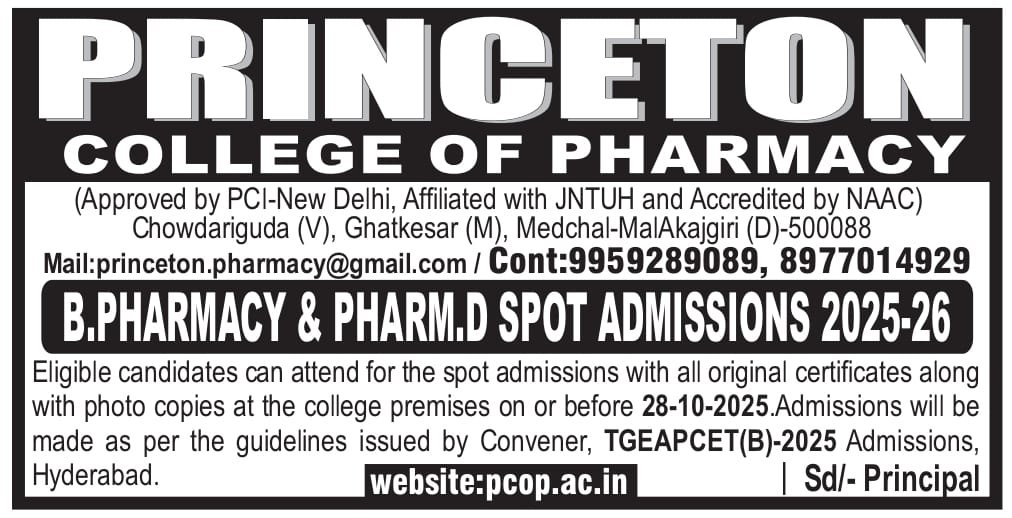Princeton College of Pharmacy, committed to the holistic development of its students, actively engages in National Service Scheme (NSS)-driven outreach programs that exemplify the spirit of social responsibility and community service. These programs are designed not only to instill values of empathy, leadership, and civic responsibility among students but also to extend meaningful support and awareness to underprivileged and rural communities.
The NSS unit at Princeton College of Pharmacy plays a pivotal role in organizing and executing a variety of outreach initiatives throughout the academic year. These initiatives range from health camps, blood donation drives, and sanitation awareness campaigns to environmental conservation efforts, literacy programs, and support for marginalized groups. With a strong emphasis on health awareness, the college frequently conducts medical camps and pharmaceutical awareness programs in nearby villages, enabling students to apply their academic knowledge in real-life contexts while promoting well-being among the underserved.

One of the significant features of these outreach programs is the integration of pharmaceutical expertise with social welfare. Students and faculty volunteers work together to educate communities about the proper use of medicines, the dangers of self-medication, and the importance of adhering to prescribed treatments. These activities not only contribute to public health but also bridge the gap between healthcare providers and the public, especially in areas with limited access to medical services.
Environmental consciousness is another cornerstone of the NSS activities at the college. Tree plantation drives, plastic-free campus initiatives, and cleanliness campaigns under the Swachh Bharat Abhiyan are regularly organized to inculcate sustainable practices among students and local residents. Such programs emphasize the importance of a cleaner and greener environment and encourage active participation from all age groups.
In addition, the NSS unit collaborates with NGOs and government bodies to organize awareness rallies and campaigns on pressing social issues such as drug abuse prevention, gender equality, women’s empowerment, and mental health. These events often include street plays, seminars, and poster presentations that not only engage the local population but also help students hone their communication and organizational skills.
The impact of these NSS-driven outreach programs goes beyond community benefits; they foster a strong sense of purpose and compassion among participating students. By stepping out of their classrooms and into the community, students of Princeton College of Pharmacy develop a broader understanding of societal challenges and are inspired to become agents of positive change.
In conclusion, the NSS initiatives at Princeton College of Pharmacy stand as a testament to the college’s unwavering commitment to social responsibility and student development. Through these outreach efforts, the college continues to build a bridge between academic knowledge and societal needs, nurturing a generation of socially conscious pharmacists ready to serve the community with dedication and empathy



